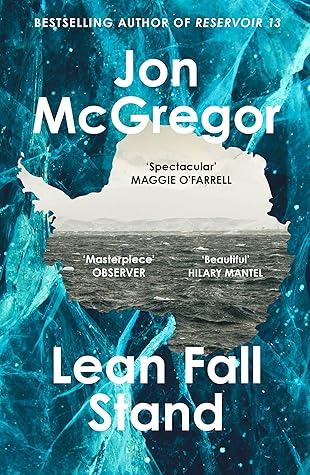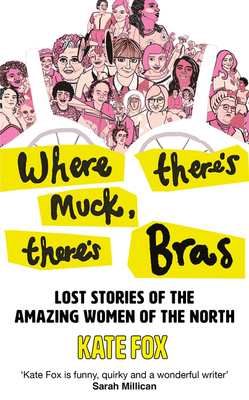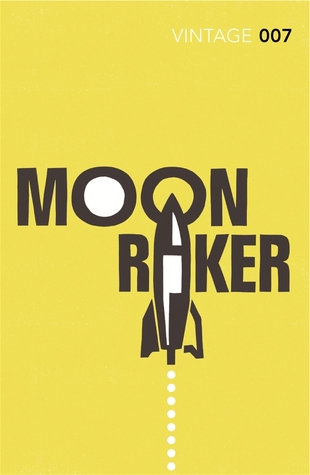July in Books
I read 12 books in July. My favourite was This One Sky Day, but I also loved Hamnet and The Thursday Murder Club. All three came highly recommended, so you all clearly have good taste!
My first read in July was This One Sky Day, which was longlisted for this year's Women's Prize for Fiction.

I really loved This One Sky Day, which never outstayed its welcome despite its (slightly off-putting) length. I really loved the conceit at the heart of this fantasy (that people have magical abilities, or cors), and I loved how simple yet imaginative the world-building was. I loved the character-building, the way Leone Ross incorporated real-life ideas and myths into the story, and the clarity of her writing throughout. So don't be put off if, like me, you're not generally a fantasy reader! This is a book I can highly recommend.
⭐⭐⭐⭐⭐
Up next was Breakfast at Tiffany's by Truman Capote, which I picked up on a whim, after reading about it in Plain Bad Heroines.

I didn’t realise, but this edition actually contains four short stories, the first and longest of which is Breakfast at Tiffany’s. I love Truman Capote’s writing (in all of these stories, and in the only other book of his I have read, In Cold Blood), which feels deceptively simple. There is just something about the way he writes that made me want to keep reading, and I particularly like the economy of his writing. I enjoyed all of these stories, and I particularly liked the sense of place in them. I'm glad to have ticked another 'classic' off the list, and I would welcome any more Truman Capote recommendations.
⭐⭐⭐⭐
My next read was another Women's Prize nominee, this one from the shortlist: The Island of Missing Trees by Elif Shafak.

The Island of Missing Trees is a lovely story, and the 'Reader's Note' at the end testifies to the time and care Elif Shafak has devoted to researching her topic. This is the first book I have read from Shafak, and I was impressed with how assured, yet playful, her writing was. I particularly liked the way she wrote about Cyprus, and its war-torn history, in a way which was detailed and specific, yet clear and engaging. The Island of Missing Trees was a book I liked rather than loved, but I think I might have to catch up with Shafak's backlist.
⭐⭐⭐⭐
After this came Live and Let Die by Ian Fleming, the second in his 007 series.

I really enjoyed Live and Let Die. It was interesting to see the differences between the film and the book, and I especially enjoyed seeing where other Bond films had borrowed from this book. I really like Ian Fleming's Bond, and, as in Casino Royale, I was pleasantly surprised by how human he felt. I found this book more believable, and therefore more intense, than the film adaptation. Between Fleming's talent for writing about place and his cinematic language, I can see why these books make such good films. Although I didn't personally find the racism and misogyny too off-putting, they did stop Live and Let Die being a five-star read for me. I am definitely adding Moonraker to my to-read list.
⭐⭐⭐⭐
The next book I read in July was one from the backlog: Lean Fall Stand by Jon McGregor.

Lean Fall Stand opens with an expedition to Antarctica that has gone wrong. I absolutely loved this section, and found the sudden shift to the second section difficult to get into. Although I liked the way McGregor writes about stroke patients' rehabilitation, I was a little disappointed that the book didn't end up being about the Antarctic. I was impressed with how McGregor represents language (although I found some of the longer passages a little tiresome), and I liked the subtleties in McGregor's characterisation. Lean Fall Stand is the first book I have read by Jon McGregor, but I doubt it will be my last.
⭐⭐⭐⭐
Up next was The Honjin Murders, a 'classic' Japanese locked-room mystery, by Seishi Yokomizo (translated by Louise Heal Kawai).

I enjoyed The Honjin Murders, and I appreciated that it was short and captivating enough that I read it in one sitting. However, I found the style of narration a little slow, since the conceit is that the story is told some time after the event, and the narrator often talks the reader through the telling of the story. I also found the explanation a little complicated. But I always enjoy a story about a dysfunctional family, and I liked the characterisation throughout The Honjin Murders. I won’t be rushing to read the rest of the series, but I am intrigued by its detective…
⭐⭐⭐
I picked up a new release next: Ghost Lover, a collection of short stories by Lisa Taddeo.

The stories in Ghost Lover felt familiar to me. I feel like I've read other books written in a similar style and exploring similar themes, including Taddeo's previous Animal. The wildness, even brutality, of these short stories should have made them feel unique, but I think they will end up being (for me) quite forgettable. I enjoyed these stories to an extent, but they ultimately left me feeling a little flat. Ghost Lover didn't quite work for me, and I found myself put-off by some of the language, which felt unnecessarily offensive.
⭐⭐⭐
My next pick was the much-hyped The Thursday Murder Club by Richard Osman.

The Thursday Murder Club is a classic ‘cosy crime’ novel: a light-hearted, absurdly unrealistic, and very funny mystery. I love the concept of this book, which is set in a luxury retirement village, and I never got tired of the comedy this led to. The main characters are interesting, and while the ending is perhaps a little spun-out, I did enjoy the way it kept you guessing until the very end. The whole situation is of course absurdly unrealistic, but that’s all part of the fun, and I enjoyed the everyday touches of realism. The Thursday Murder Club didn’t grip me from the first page, but by the end I couldn’t put it down.
⭐⭐⭐⭐⭐
I finally read Hamnet, the 2020 Women's Prize for Fiction winner, by Maggie O'Farrell in July.

I wasn't sure Hamnet would work for me, but it really did. Maggie O'Farrell's skill as a writer is evident, as she constructs a story that manages to be tense and utterly heart-rending, despite the outcome already being known. This is obviously a work of fiction, and needs to be read as such, but I think Hamnet does a superb job of capturing the time and place of its story. I don't believe in reading too much of an artist's life into their work, and I thought Hamnet did a great job of creating an interesting story in its own right, which has been inspired by, and is interested in, Shakespeare ... right up until the ending.
⭐⭐⭐⭐⭐
My next read was Cursed Bunny by Bora Chung (translated by Anton Hur), which was shortlisted for this year's International Booker Prize.

What a strange book. I didn’t know what to expect from Cursed Bunny, and the first story took me by surprise with its blunt language and fantasy imagery. These short stories range in tone from the contemporary to the fairytale, but they all share a penchant for darkness. You never quite know where the story is going to go next, but the writing always feels confident and controlled. I didn’t love all the stories in Cursed Bunny equally, but I did enjoy them all, and I was repeatedly struck by their creativity and ingenuity. An author to watch.
⭐⭐⭐⭐
Up next was Where There’s Muck, There’s Bras: Lost Stories of the Amazing Women of the North by Kate Fox, my first read from the Harper North imprint.

What made Where There's Muck, There's Bra's, for me, was the author’s voice. Kate Fox has made this book personal and funny, and I really enjoyed reading it. I really liked the way this book was laid out, giving the reader little bits of information about lots of different women, and grouping women together in interesting and logical ways. The only downside is that Where There’s Muck, There’s Bras isn’t as rigorously researched as I would have liked, leaving the reader a little unsure as to the accuracy of everything the book claims.
⭐⭐⭐⭐
On the final day of July, I managed to squeeze in one last book: the follow-up to Live and Let Die, Moonraker by Ian Fleming.

I'm really enjoying this series, with their grittier, more human Bond than the films usually depict. The writing is utterly absorbing, and I find myself thinking about the stories long after reading them. I'm also enjoying seeing the similarities (and the many differences!) to the films. If it wasn't for the sexism that I just can't quite fully get past, Moonraker would be a five-star read for me. Diamonds are Forever next!
⭐⭐⭐⭐
My first read in July was This One Sky Day, which was longlisted for this year's Women's Prize for Fiction.

I really loved This One Sky Day, which never outstayed its welcome despite its (slightly off-putting) length. I really loved the conceit at the heart of this fantasy (that people have magical abilities, or cors), and I loved how simple yet imaginative the world-building was. I loved the character-building, the way Leone Ross incorporated real-life ideas and myths into the story, and the clarity of her writing throughout. So don't be put off if, like me, you're not generally a fantasy reader! This is a book I can highly recommend.
⭐⭐⭐⭐⭐
Up next was Breakfast at Tiffany's by Truman Capote, which I picked up on a whim, after reading about it in Plain Bad Heroines.

I didn’t realise, but this edition actually contains four short stories, the first and longest of which is Breakfast at Tiffany’s. I love Truman Capote’s writing (in all of these stories, and in the only other book of his I have read, In Cold Blood), which feels deceptively simple. There is just something about the way he writes that made me want to keep reading, and I particularly like the economy of his writing. I enjoyed all of these stories, and I particularly liked the sense of place in them. I'm glad to have ticked another 'classic' off the list, and I would welcome any more Truman Capote recommendations.
⭐⭐⭐⭐
My next read was another Women's Prize nominee, this one from the shortlist: The Island of Missing Trees by Elif Shafak.

The Island of Missing Trees is a lovely story, and the 'Reader's Note' at the end testifies to the time and care Elif Shafak has devoted to researching her topic. This is the first book I have read from Shafak, and I was impressed with how assured, yet playful, her writing was. I particularly liked the way she wrote about Cyprus, and its war-torn history, in a way which was detailed and specific, yet clear and engaging. The Island of Missing Trees was a book I liked rather than loved, but I think I might have to catch up with Shafak's backlist.
⭐⭐⭐⭐
After this came Live and Let Die by Ian Fleming, the second in his 007 series.

I really enjoyed Live and Let Die. It was interesting to see the differences between the film and the book, and I especially enjoyed seeing where other Bond films had borrowed from this book. I really like Ian Fleming's Bond, and, as in Casino Royale, I was pleasantly surprised by how human he felt. I found this book more believable, and therefore more intense, than the film adaptation. Between Fleming's talent for writing about place and his cinematic language, I can see why these books make such good films. Although I didn't personally find the racism and misogyny too off-putting, they did stop Live and Let Die being a five-star read for me. I am definitely adding Moonraker to my to-read list.
⭐⭐⭐⭐
The next book I read in July was one from the backlog: Lean Fall Stand by Jon McGregor.

Lean Fall Stand opens with an expedition to Antarctica that has gone wrong. I absolutely loved this section, and found the sudden shift to the second section difficult to get into. Although I liked the way McGregor writes about stroke patients' rehabilitation, I was a little disappointed that the book didn't end up being about the Antarctic. I was impressed with how McGregor represents language (although I found some of the longer passages a little tiresome), and I liked the subtleties in McGregor's characterisation. Lean Fall Stand is the first book I have read by Jon McGregor, but I doubt it will be my last.
⭐⭐⭐⭐
Up next was The Honjin Murders, a 'classic' Japanese locked-room mystery, by Seishi Yokomizo (translated by Louise Heal Kawai).

I enjoyed The Honjin Murders, and I appreciated that it was short and captivating enough that I read it in one sitting. However, I found the style of narration a little slow, since the conceit is that the story is told some time after the event, and the narrator often talks the reader through the telling of the story. I also found the explanation a little complicated. But I always enjoy a story about a dysfunctional family, and I liked the characterisation throughout The Honjin Murders. I won’t be rushing to read the rest of the series, but I am intrigued by its detective…
⭐⭐⭐
I picked up a new release next: Ghost Lover, a collection of short stories by Lisa Taddeo.

The stories in Ghost Lover felt familiar to me. I feel like I've read other books written in a similar style and exploring similar themes, including Taddeo's previous Animal. The wildness, even brutality, of these short stories should have made them feel unique, but I think they will end up being (for me) quite forgettable. I enjoyed these stories to an extent, but they ultimately left me feeling a little flat. Ghost Lover didn't quite work for me, and I found myself put-off by some of the language, which felt unnecessarily offensive.
⭐⭐⭐
My next pick was the much-hyped The Thursday Murder Club by Richard Osman.

The Thursday Murder Club is a classic ‘cosy crime’ novel: a light-hearted, absurdly unrealistic, and very funny mystery. I love the concept of this book, which is set in a luxury retirement village, and I never got tired of the comedy this led to. The main characters are interesting, and while the ending is perhaps a little spun-out, I did enjoy the way it kept you guessing until the very end. The whole situation is of course absurdly unrealistic, but that’s all part of the fun, and I enjoyed the everyday touches of realism. The Thursday Murder Club didn’t grip me from the first page, but by the end I couldn’t put it down.
⭐⭐⭐⭐⭐
I finally read Hamnet, the 2020 Women's Prize for Fiction winner, by Maggie O'Farrell in July.

I wasn't sure Hamnet would work for me, but it really did. Maggie O'Farrell's skill as a writer is evident, as she constructs a story that manages to be tense and utterly heart-rending, despite the outcome already being known. This is obviously a work of fiction, and needs to be read as such, but I think Hamnet does a superb job of capturing the time and place of its story. I don't believe in reading too much of an artist's life into their work, and I thought Hamnet did a great job of creating an interesting story in its own right, which has been inspired by, and is interested in, Shakespeare ... right up until the ending.
⭐⭐⭐⭐⭐
My next read was Cursed Bunny by Bora Chung (translated by Anton Hur), which was shortlisted for this year's International Booker Prize.

What a strange book. I didn’t know what to expect from Cursed Bunny, and the first story took me by surprise with its blunt language and fantasy imagery. These short stories range in tone from the contemporary to the fairytale, but they all share a penchant for darkness. You never quite know where the story is going to go next, but the writing always feels confident and controlled. I didn’t love all the stories in Cursed Bunny equally, but I did enjoy them all, and I was repeatedly struck by their creativity and ingenuity. An author to watch.
⭐⭐⭐⭐
Up next was Where There’s Muck, There’s Bras: Lost Stories of the Amazing Women of the North by Kate Fox, my first read from the Harper North imprint.

What made Where There's Muck, There's Bra's, for me, was the author’s voice. Kate Fox has made this book personal and funny, and I really enjoyed reading it. I really liked the way this book was laid out, giving the reader little bits of information about lots of different women, and grouping women together in interesting and logical ways. The only downside is that Where There’s Muck, There’s Bras isn’t as rigorously researched as I would have liked, leaving the reader a little unsure as to the accuracy of everything the book claims.
⭐⭐⭐⭐
On the final day of July, I managed to squeeze in one last book: the follow-up to Live and Let Die, Moonraker by Ian Fleming.

I'm really enjoying this series, with their grittier, more human Bond than the films usually depict. The writing is utterly absorbing, and I find myself thinking about the stories long after reading them. I'm also enjoying seeing the similarities (and the many differences!) to the films. If it wasn't for the sexism that I just can't quite fully get past, Moonraker would be a five-star read for me. Diamonds are Forever next!
⭐⭐⭐⭐
Published on August 01, 2022 03:05
No comments have been added yet.



